Find The Best Scaffolding Contractors With ScaffoldingHQ
Find & Hire Trusted Scaffolding Specialists
ScaffoldingHQ connects you with vetted scaffolding companies for any project. Get free quotes, compare services, and find the perfect match for your scaffolding needs in the USA. Whether you need scaffolding for construction, renovation, or maintenance, we've got you covered.
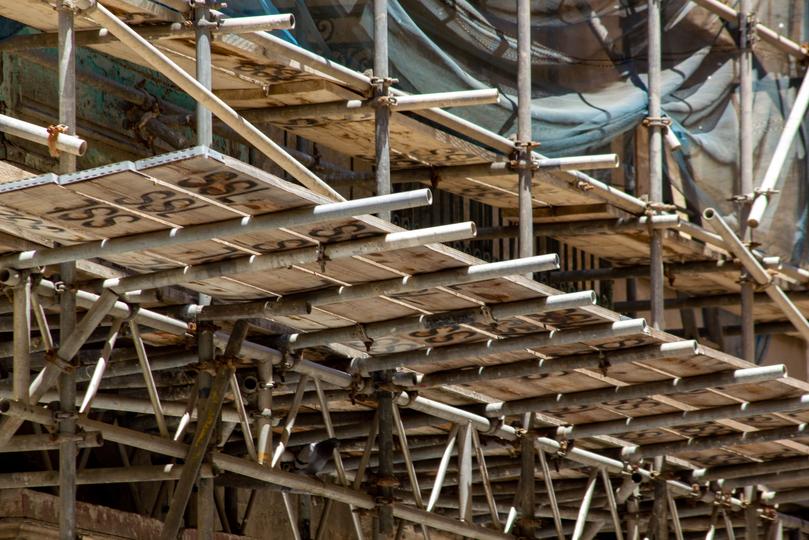
Discover Other Scaffolding Services
ScaffoldingHQ offers a full range of scaffolding services. Find scaffolders for specialized needs like scaffolding rental, commercial scaffolding, canopy installation and more.
Need scaffolding for a short-term project? Find reliable scaffolding rental companies near you and get competitive rates.
Scale your commercial construction projects safely and efficiently. Find experienced commercial scaffolding providers on our directory.
Add style and protection to your property. Find expert canopy installers for residential and commercial projects on our directory.
Finding The Right Scaffolding Company Is Easy With ScaffoldingHQ
We make it simple to connect with vetted scaffolding professionals across the USA.
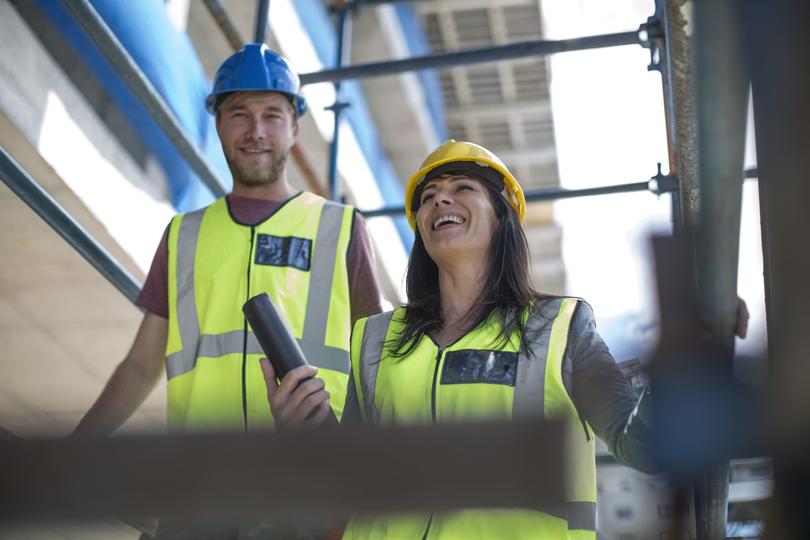
- Tell Us About Your Project
- Describe your scaffolding needs, whether it's for new construction, renovation, maintenance, or any other project. Let us know your project location, desired scaffolding type, and duration.
- We Connect You With Local Contractors
- We'll match you with reputable scaffolding companies in your area who specialize in your project type and have experience working on similar projects.
- Compare Quotes & Choose The Best Fit
- Review quotes from multiple scaffolding companies, compare their services, experience, and pricing to make the best choice for your needs. We provide you with all the information you need to make an informed decision.
- Get Your Project Started!
- With the right scaffolding company on board, you can start your construction project safely and efficiently. We help you build with confidence.
Why Choose ScaffoldingHQ for Your Scaffolding Project?
Why Choose ScaffoldingHQ for Your Scaffolding Needs?
We take the hassle out of finding reliable scaffolding companies in the USA. Here's why ScaffoldingHQ is the best choice for your next project: We make it easy to find and compare qualified scaffolding providers in your area. Here's how:

- Vetted & Trusted Companies
- We carefully vet all scaffolding companies in our directory to ensure they are licensed, insured, and have a proven track record of quality workmanship and customer satisfaction. You can be confident that you're choosing from the best in the industry.
- Get Competitive Quotes
- Compare prices from multiple scaffolding companies and find the best deal for your project. We make it easy to see all your options side-by-side so you can make an informed decision.
- Save Time & Effort
- Let us do the work for you! Find the right scaffolding company quickly and easily without endless searching. Simply submit your project details and we'll do the rest.
- Wide Range of Services
- We offer a comprehensive directory of scaffolding companies who specialize in a variety of services, including scaffolding erection, scaffolding dismantling, scaffolding rental. Whether your project is big or small, we can connect you with the right experts.
- Customer Support
- Our dedicated team is here to help you with any questions or issues. We're committed to your satisfaction and want to ensure you have a positive experience with ScaffoldingHQ.
- Free To Use
- ScaffoldingHQ is completely free to use for homeowners, contractors, and businesses. There are no hidden fees or obligations. Get started today and find the perfect scaffolding company for your needs.
Need Scaffolding for Your Business?
Commercial Scaffolding Services
Find trusted commercial scaffolding companies on ScaffoldingHQ. We have specialists for high-rise scaffolding, industrial scaffolding, temporary roofing systems and more. Our contractors are experienced in working on a variety of commercial buildings, including warehouses, factories, schools.
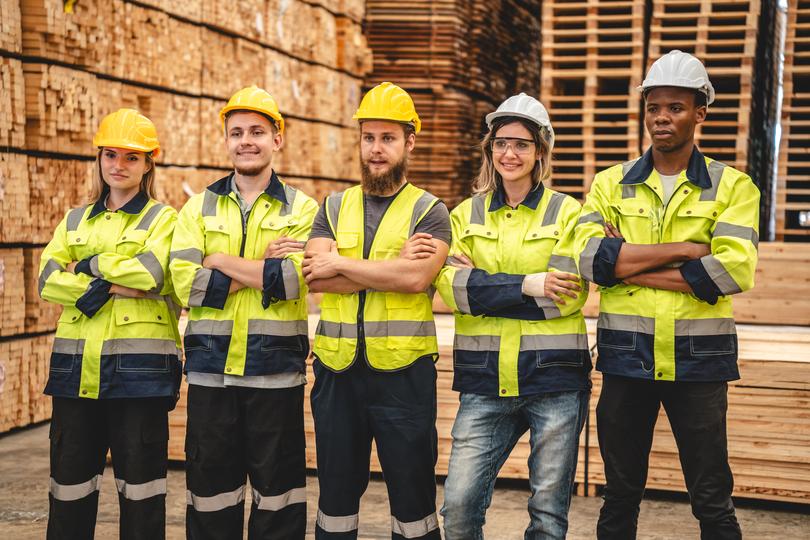
Need scaffolding for a short-term project? Find reliable scaffolding rental companies near you and get competitive rates.
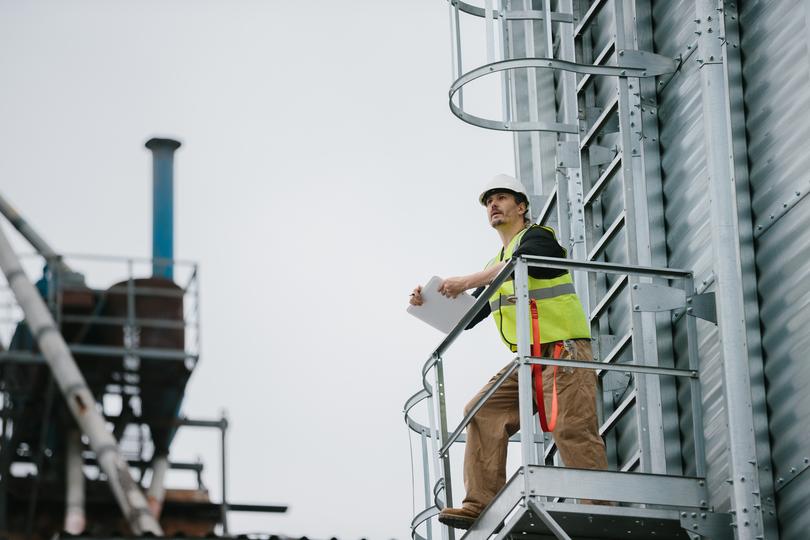
Scale your commercial construction projects safely and efficiently. Find experienced commercial scaffolding providers on our directory.
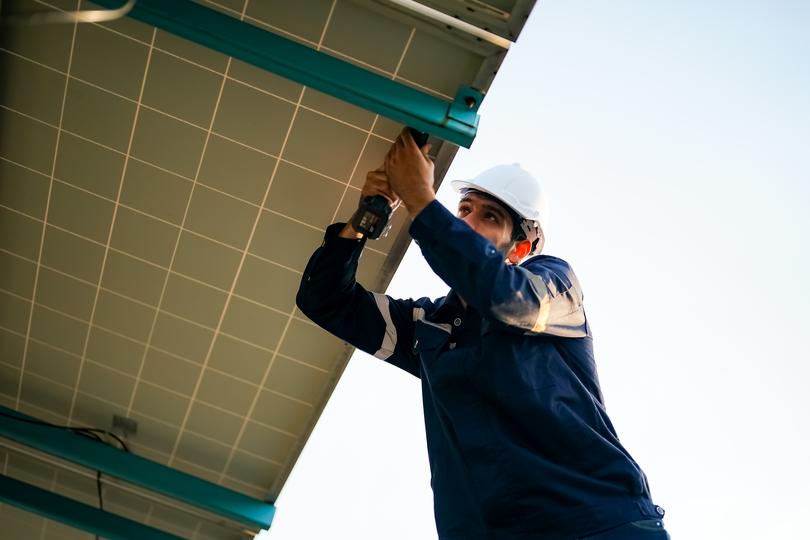
Add style and protection to your property. Find expert canopy installers for residential and commercial projects on our directory.
Need Scaffolding for Your Home?
Residential Scaffolding Services
ScaffoldingHQ connects you with reliable residential scaffolding companies. Find experts for roofing projects, chimney repairs, solar panel installations. We can help you find the right contractor for your house, bungalow, cottage.

Find trusted scaffolding companies near you. Get quotes for scaffolding erection, dismantling, and rental services.

Need scaffolding for a short-term project? Find reliable scaffolding rental companies near you and get competitive rates.

Add style and protection to your property. Find expert canopy installers for residential and commercial projects on our directory.
Ready to Get Started on Your Construction Project?
Find The Best Scaffolding Companies on ScaffoldingHQ!
Get free quotes, compare services, and connect with trusted professionals.
Scaffolding Glossary
Scaffolding
Tube and Clamp Scaffolding
System Scaffolding
Suspended Scaffolding
Mobile Scaffolding
Scaffolding Deck
Guardrail
Toeboard
Scaffolding Tag
Scaffolding Inspection
Scaffolding Erectors
Kwikstage Scaffolding
Cuplok Scaffolding
Shoring
Scaffolding Safety Harness
Frequently Asked Questions About Scaffolding Companies
How do I find a reputable scaffolding company?
- Experience and Expertise: Look for companies with a proven track record in similar projects, whether it's residential, commercial, or industrial.
- Licensing and Insurance: Verify that the company has the necessary licenses and insurance coverage to operate legally and protect you from liability.
- Safety Record: Inquire about their safety practices and training programs for their employees. A strong safety culture is crucial in scaffolding.
- Reputation and Reviews: Check online reviews and testimonials from previous clients to gauge their reliability and quality of work.
- Professionalism: Choose a company that communicates clearly, provides detailed quotes, and demonstrates a commitment to customer satisfaction.
How much does scaffolding cost to hire in the USA?
- Project Size and Complexity: The height, configuration, and accessibility of the scaffolding will influence the amount of materials and labor required.
- Scaffolding Type: Different scaffolding systems (tube and clamp, system scaffolding, suspended scaffolding) have varying costs.
- Duration of Rental: The length of time you need the scaffolding will affect the overall rental price.
- Location: Labor costs and material availability can differ based on your location.
- Additional Services: Some companies may offer additional services like erection, dismantling, or transportation, which can add to the cost.
What are the different types of scaffolding?
- Tube and Clamp Scaffolding: A traditional and versatile system using individual tubes and clamps. It's highly adaptable but requires more time to erect.
- System Scaffolding: Pre-engineered systems with modular components that fit together quickly. They offer speed and efficiency, especially for larger projects.
- Suspended Scaffolding: Hung from a roof or overhead structure, ideal for high-rise buildings or areas with limited ground access.
- Mobile Scaffolding: Mounted on wheels, allowing easy movement around a worksite. Suitable for tasks like painting or plastering.
- Specialized Scaffolding: Cantilever scaffolding, rolling towers, and other specialized systems cater to specific needs.
What are the safety regulations for scaffolding in the USA?
- Work at Height Regulations 2005: Covers all work at height and outlines the need for risk assessments, competent erectors, and safe equipment.
- Construction (Design and Management) Regulations 2015 (CDM): Applies to construction projects and requires planning for scaffolding safety throughout the project lifecycle.
- British Standard BS EN 12811: Sets standards for the design, manufacture, and testing of scaffolding components.
- NASC (National Access & Scaffolding Confederation) Guidance: Provides industry best practices and safety recommendations for scaffolding.
Do I need a permit for scaffolding in the USA?
- Encroaches onto public property (sidewalks, roads): Permits are usually needed from the local council or highway authority.
- Exceeds a certain height: Scaffolding above a specified height often requires a permit.
- Is erected in a conservation area or near a listed building: Special considerations and permits may apply.
How do I choose the right type of scaffolding for my project?
- Project Height and Access: The height of the structure and the accessibility of the working area are primary considerations.
- Load Capacity: The weight of workers, materials, and equipment that the scaffolding needs to support.
- Project Complexity and Shape: The shape and complexity of the structure may necessitate specialized scaffolding configurations.
- Ground Conditions: The type of ground (soft, uneven, sloping) will influence the scaffolding foundation and support requirements.
- Duration of Use: The length of time the scaffolding will be needed can impact the choice of system.
- Budget: Different scaffolding types have varying costs.
What questions should I ask a scaffolding company before hiring them?
- Experience: 'How long have you been in business, and what experience do you have with projects like mine?'
- Licensing and Insurance: 'Are you fully licensed and insured, and can I see proof of coverage?'
- Safety Record: 'What are your safety procedures, and how do you ensure worker safety on the job site?'
- References: 'Can you provide references from previous clients?'
- Quotes and Costs: 'Can you provide a detailed quote that outlines all costs, including materials, labor, and any additional services?'
- Project Timeline: 'What is the estimated timeframe for scaffolding erection and dismantling?'
- Communication: 'How will you communicate with me throughout the project?'
How often should scaffolding be inspected?
- Regulations: Local regulations often specify minimum inspection intervals.
- Project Type and Duration: Long-term projects or those in challenging environments may require more frequent inspections.
- Weather Conditions: Severe weather (storms, high winds) can necessitate additional inspections.
- Any Alterations or Modifications: Any changes to the scaffolding structure require re-inspection.
What is the weight limit for scaffolding?
- Workers: Consider the number of workers on the scaffolding at any given time.
- Materials: Include the weight of building materials, tools, and equipment being used on the platform.
- Environmental Factors: Factor in potential loads from wind or snow, especially for taller scaffolding structures.
What are some common scaffolding safety hazards?
- Falls from Height: The most significant risk, often due to lack of guardrails, improper use of safety harnesses, or unstable platforms.
- Falling Objects: Tools, materials, or debris falling from the scaffolding can injure workers or people below.
- Scaffold Collapse: Improper assembly, overloading, or inadequate foundation support can lead to a catastrophic collapse.
- Electrocution: Contact with overhead power lines is a serious hazard when working near electrical infrastructure.
- Slips, Trips, and Falls: Wet or cluttered platforms, uneven surfaces, and loose debris can cause falls.
What is the difference between tube and clamp scaffolding and system scaffolding?
Tube and Clamp Scaffolding:
- Traditional and highly versatile.
- Components (tubes, clamps, boards) are assembled on-site.
- Adaptable to complex shapes and structures.
- Requires skilled labor and more time for erection.
- Pre-engineered, modular components.
- Faster and easier to erect.
- Often has higher load capacities.
- May be less versatile for complex shapes.
Can I erect scaffolding myself?
How do I know if a scaffolding company is reputable?
- Licensing and Insurance: Verify their licenses are current and that they have adequate insurance coverage.
- Experience: Choose a company with a history of successfully completing similar projects. Ask for references and check their portfolio.
- Safety Record: Inquire about their safety practices and accident history. A strong safety culture is essential.
- Professionalism: Observe their communication, responsiveness, and attention to detail. A reputable company will be organized and transparent.
- Reviews and Testimonials: Read online reviews and feedback from previous clients to assess their reputation.
- Industry Affiliations: Membership in professional organizations like the NASC (National Access & Scaffolding Confederation) indicates a commitment to industry standards.
What should I look for during a scaffolding inspection?
- Stability and Level: The scaffolding is level and firmly supported by a solid foundation.
- Secure Connections: All components (tubes, clamps, fittings) are properly connected and tightened.
- Guardrails and Toeboards: Adequate guardrails and toeboards are in place to prevent falls.
- Platforms and Decking: Platforms are secure, free from damage, and provide adequate working space.
- Access and Egress: Safe access and exit points are available (ladders, stairs).
- Weather Protection: Appropriate measures are in place to protect workers from adverse weather conditions (e.g., wind screens, covers).
- Clearance from Hazards: The scaffolding is a safe distance from power lines, trees, or other potential hazards.
- Scaffolding Tag: The scaffolding tag is up-to-date and displays the last inspection date, maximum load capacity, and any restrictions.
What is the difference between scaffolding and staging?
Scaffolding:
- A larger, more complex structure typically used for accessing multiple levels of a building.
- Offers greater height and versatility.
- Often used for construction, renovation, and maintenance.
- Smaller, portable platforms usually used for tasks at a single level.
- Commonly used for painting, plastering, or light repairs.
- Can be rolling or stationary.
How long does it take to erect scaffolding?
- Size and Complexity: Larger, more intricate scaffolding structures will naturally take longer to assemble.
- Scaffolding Type: System scaffolding, with its pre-engineered components, can be erected faster than traditional tube and clamp scaffolding.
- Accessibility: Difficult site access or limited working space can prolong the erection process.
- Crew Size and Experience: The number and skill level of the scaffolding erectors will impact the speed of assembly.
What are some tips for working safely on scaffolding?
- Always Wear a Safety Harness: Connect your harness to a secure anchor point at all times to prevent falls.
- Keep Platforms Clear: Remove tools, materials, and debris to avoid tripping hazards.
- Never Overload the Scaffolding: Stay within the designated weight limits.
- Be Aware of Your Surroundings: Pay attention to power lines, moving equipment, and other potential hazards.
- Inspect Before Use: Check the scaffolding for any damage or defects before starting work.
- Communicate Clearly: Use hand signals and clear communication to coordinate with other workers.
- Follow Safety Training: Attend and understand all safety training provided by your employer or the scaffolding company.
How do I dismantle scaffolding safely?
- Hire Professionals: Just like erection, dismantling should be done by qualified and experienced scaffolding erectors.
- Reverse the Erection Process: The dismantling process should generally follow the reverse order of erection.
- Clear the Area: Ensure the area below is free from people and obstacles.
- Lower Materials Safely: Use ropes or other safe methods to lower dismantled components to the ground.
- Inspect Components: As components are removed, inspect them for damage and store them properly for future use.
What are some common materials used in scaffolding?
- Steel: The most common material due to its strength, durability, and resistance to corrosion.
- Aluminum: Lighter than steel, often used for smaller projects or where weight is a concern.
- Timber: Used for decking platforms and some traditional scaffolding structures. It's less common now due to its susceptibility to rot and damage.
- Fiberglass: Used in specialized applications where electrical conductivity is a concern.
What is the difference between a scaffold and a ladder?
Scaffolding:
- A temporary structure with a larger platform for workers and materials.
- Offers greater stability and working space.
- Suitable for tasks requiring movement and multiple workers.
- Used for higher elevations and more complex projects.
- Used for reaching specific points at height for short durations.
- Less stable than scaffolding, requiring more caution and balance.
- Not suitable for tasks involving heavy materials or extended work periods.
What is a scaffolding hoist?
How do I protect my property from damage during scaffolding erection and dismantling?
- Communicate with the Scaffolding Company: Clearly express your concerns about potential damage to landscaping, structures, or utilities.
- Clear the Area: Remove any valuable or fragile items from the work zone.
- Protect Landscaping: Cover plants, shrubs, and lawns with tarps or protective sheeting.
- Mark Underground Utilities: Ensure underground utilities (water lines, electrical cables) are marked and avoided during installation.
- Supervision: If possible, be present during erection and dismantling to monitor the process.
What are some alternatives to traditional scaffolding?
- Mobile Elevated Work Platforms (MEWPs): Scissor lifts, boom lifts, and other MEWPs offer flexible access for specific tasks.
- Mast Climbing Work Platforms (MCWPs): Ideal for high-rise construction, providing a stable working platform that can be raised incrementally.
- Suspended Access Equipment: Ropes and harnesses used for specific tasks like window cleaning or façade repairs.
- Ladders and Step Ladders: For shorter durations and limited working heights, provided they are used safely and appropriately.
How can I find scaffolding companies near me?
- Online Directories: Use specialized directories like ScaffoldingHQ to search for scaffolding companies in your area.
- Search Engines: Use Google or other search engines to search for 'scaffolding companies near me' or 'scaffolding rental [your location]'.
- Local Construction Associations: Contact local construction associations for recommendations.
- Word-of-Mouth Referrals: Ask friends, family, or colleagues for recommendations based on their past experiences.
How do I find a reputable scaffolding company?
- Experience and Expertise: Look for companies with a proven track record in your type of project, whether it's residential, commercial, or industrial.
- Licensing and Insurance: Verify that the company has the necessary licenses and insurance coverage to operate legally and protect you from liability.
- Safety Record: Inquire about their safety practices and training programs for their employees. A strong safety culture is crucial in scaffolding.
- Reputation and Reviews: Check online reviews and testimonials from previous clients to gauge their reliability and quality of work.
- Professionalism: Choose a company that communicates clearly, provides detailed quotes, and demonstrates a commitment to customer satisfaction.
How much does scaffolding cost to hire in the USA?
- Project Size and Complexity: The height, configuration, and accessibility of the scaffolding will influence the amount of materials and labor required.
- Scaffolding Type: Different scaffolding systems (tube and clamp, system scaffolding, suspended scaffolding) have varying costs.
- Duration of Rental: The length of time you need the scaffolding will affect the overall rental price.
- Location: Labor costs and material availability can differ based on your location.
- Additional Services: Some companies may offer additional services like erection, dismantling, or transportation, which can add to the cost.
What are the different types of scaffolding?
- Tube and Clamp Scaffolding: A traditional and versatile system using individual tubes and clamps. It's highly adaptable but requires more time to erect.
- System Scaffolding: Pre-engineered systems with modular components that fit together quickly. They offer speed and efficiency, especially for larger projects.
- Suspended Scaffolding: Hung from a roof or overhead structure, ideal for high-rise buildings or areas with limited ground access.
- Mobile Scaffolding: Mounted on wheels, allowing easy movement around a worksite. Suitable for tasks like painting or plastering.
- Specialized Scaffolding: Cantilever scaffolding, rolling towers, and other specialized systems cater to specific needs.
What are the safety regulations for scaffolding in the USA?
- Work at Height Regulations 2005: Covers all work at height and outlines the need for risk assessments, competent erectors, and safe equipment.
- Construction (Design and Management) Regulations 2015 (CDM): Applies to construction projects and requires planning for scaffolding safety throughout the project lifecycle.
- British Standard BS EN 12811: Sets standards for the design, manufacture, and testing of scaffolding components.
- NASC (National Access & Scaffolding Confederation) Guidance: Provides industry best practices and safety recommendations for scaffolding.
Do I need a permit for scaffolding in the USA?
- Encroaches onto public property (sidewalks, roads): Permits are usually needed from the local council or highway authority.
- Exceeds a certain height: Scaffolding above a specified height often requires a permit.
- Is erected in a conservation area or near a listed building: Special considerations and permits may apply.
How do I choose the right type of scaffolding for my project?
- Project Height and Access: The height of the structure and the accessibility of the working area are primary considerations.
- Load Capacity: The weight of workers, materials, and equipment that the scaffolding needs to support.
- Project Complexity and Shape: The shape and complexity of the structure may necessitate specialized scaffolding configurations.
- Ground Conditions: The type of ground (soft, uneven, sloping) will influence the scaffolding foundation and support requirements.
- Duration of Use: The length of time the scaffolding will be needed can impact the choice of system.
- Budget: Different scaffolding types have varying costs.
What questions should I ask a scaffolding company before hiring them?
- Experience: 'How long have you been in business, and what experience do you have with projects like mine?'
- Licensing and Insurance: 'Are you fully licensed and insured, and can I see proof of coverage?'
- Safety Record: 'What are your safety procedures, and how do you ensure worker safety on the job site?'
- References: 'Can you provide references from previous clients?'
- Quotes and Costs: 'Can you provide a detailed quote that outlines all costs, including materials, labor, and any additional services?'
- Project Timeline: 'What is the estimated timeframe for scaffolding erection and dismantling?'
- Communication: 'How will you communicate with me throughout the project?'
How often should scaffolding be inspected?
- Regulations: Local regulations often specify minimum inspection intervals.
- Project Type and Duration: Long-term projects or those in challenging environments may require more frequent inspections.
- Weather Conditions: Severe weather (storms, high winds) can necessitate additional inspections.
- Any Alterations or Modifications: Any changes to the scaffolding structure require re-inspection.
What is the weight limit for scaffolding?
- Workers: Consider the number of workers on the scaffolding at any given time.
- Materials: Include the weight of building materials, tools, and equipment being used on the platform.
- Environmental Factors: Factor in potential loads from wind or snow, especially for taller scaffolding structures.
What are some common scaffolding safety hazards?
- Falls from Height: The most significant risk, often due to lack of guardrails, improper use of safety harnesses, or unstable platforms.
- Falling Objects: Tools, materials, or debris falling from the scaffolding can injure workers or people below.
- Scaffold Collapse: Improper assembly, overloading, or inadequate foundation support can lead to a catastrophic collapse.
- Electrocution: Contact with overhead power lines is a serious hazard when working near electrical infrastructure.
- Slips, Trips, and Falls: Wet or cluttered platforms, uneven surfaces, and loose debris can cause falls.
What is the difference between tube and clamp scaffolding and system scaffolding?
Tube and Clamp Scaffolding:
- Traditional and highly versatile.
- Components (tubes, clamps, boards) are assembled on-site.
- Adaptable to complex shapes and structures.
- Requires skilled labor and more time for erection.
- Pre-engineered, modular components.
- Faster and easier to erect.
- Often has higher load capacities.
- May be less versatile for complex shapes.
Can I erect scaffolding myself?
How do I know if a scaffolding company is reputable?
- Licensing and Insurance: Verify their licenses are current and that they have adequate insurance coverage.
- Experience: Choose a company with a history of successfully completing similar projects. Ask for references and check their portfolio.
- Safety Record: Inquire about their safety practices and accident history. A strong safety culture is essential.
- Professionalism: Observe their communication, responsiveness, and attention to detail. A reputable company will be organized and transparent.
- Reviews and Testimonials: Read online reviews and feedback from previous clients to assess their reputation.
- Industry Affiliations: Membership in professional organizations like the NASC (National Access & Scaffolding Confederation) indicates a commitment to industry standards.
What should I look for during a scaffolding inspection?
- Stability and Level: The scaffolding is level and firmly supported by a solid foundation.
- Secure Connections: All components (tubes, clamps, fittings) are properly connected and tightened.
- Guardrails and Toeboards: Adequate guardrails and toeboards are in place to prevent falls.
- Platforms and Decking: Platforms are secure, free from damage, and provide adequate working space.
- Access and Egress: Safe access and exit points are available (ladders, stairs).
- Weather Protection: Appropriate measures are in place to protect workers from adverse weather conditions (e.g., wind screens, covers).
- Clearance from Hazards: The scaffolding is a safe distance from power lines, trees, or other potential hazards.
- Scaffolding Tag: The scaffolding tag is up-to-date and displays the last inspection date, maximum load capacity, and any restrictions.
What is the difference between scaffolding and staging?
Scaffolding:
- A larger, more complex structure typically used for accessing multiple levels of a building.
- Offers greater height and versatility.
- Often used for construction, renovation, and maintenance.
- Smaller, portable platforms usually used for tasks at a single level.
- Commonly used for painting, plastering, or light repairs.
- Can be rolling or stationary.
How long does it take to erect scaffolding?
- Size and Complexity: Larger, more intricate scaffolding structures will naturally take longer to assemble.
- Scaffolding Type: System scaffolding, with its pre-engineered components, can be erected faster than traditional tube and clamp scaffolding.
- Accessibility: Difficult site access or limited working space can prolong the erection process.
- Crew Size and Experience: The number and skill level of the scaffolding erectors will impact the speed of assembly.
What are some tips for working safely on scaffolding?
- Always Wear a Safety Harness: Connect your harness to a secure anchor point at all times to prevent falls.
- Keep Platforms Clear: Remove tools, materials, and debris to avoid tripping hazards.
- Never Overload the Scaffolding: Stay within the designated weight limits.
- Be Aware of Your Surroundings: Pay attention to power lines, moving equipment, and other potential hazards.
- Inspect Before Use: Check the scaffolding for any damage or defects before starting work.
- Communicate Clearly: Use hand signals and clear communication to coordinate with other workers.
- Follow Safety Training: Attend and understand all safety training provided by your employer or the scaffolding company.
How do I dismantle scaffolding safely?
- Hire Professionals: Just like erection, dismantling should be done by qualified and experienced scaffolding erectors.
- Reverse the Erection Process: The dismantling process should generally follow the reverse order of erection.
- Clear the Area: Ensure the area below is free from people and obstacles.
- Lower Materials Safely: Use ropes or other safe methods to lower dismantled components to the ground.
- Inspect Components: As components are removed, inspect them for damage and store them properly for future use.
What are some common materials used in scaffolding?
- Steel: The most common material due to its strength, durability, and resistance to corrosion.
- Aluminum: Lighter than steel, often used for smaller projects or where weight is a concern.
- Timber: Used for decking platforms and some traditional scaffolding structures. It's less common now due to its susceptibility to rot and damage.
- Fiberglass: Used in specialized applications where electrical conductivity is a concern.
What is the difference between a scaffold and a ladder?
Scaffolding:
- A temporary structure with a larger platform for workers and materials.
- Offers greater stability and working space.
- Suitable for tasks requiring movement and multiple workers.
- Used for higher elevations and more complex projects.
- Used for reaching specific points at height for short durations.
- Less stable than scaffolding, requiring more caution and balance.
- Not suitable for tasks involving heavy materials or extended work periods.
What is a scaffolding hoist?
How do I protect my property from damage during scaffolding erection and dismantling?
- Communicate with the Scaffolding Company: Clearly express your concerns about potential damage to landscaping, structures, or utilities.
- Clear the Area: Remove any valuable or fragile items from the work zone.
- Protect Landscaping: Cover plants, shrubs, and lawns with tarps or protective sheeting.
- Mark Underground Utilities: Ensure underground utilities (water lines, electrical cables) are marked and avoided during installation.
- Supervision: If possible, be present during erection and dismantling to monitor the process.
What are some alternatives to traditional scaffolding?
- Mobile Elevated Work Platforms (MEWPs): Scissor lifts, boom lifts, and other MEWPs offer flexible access for specific tasks.
- Mast Climbing Work Platforms (MCWPs): Ideal for high-rise construction, providing a stable working platform that can be raised incrementally.
- Suspended Access Equipment: Ropes and harnesses used for specific tasks like window cleaning or façade repairs.
- Ladders and Step Ladders: For shorter durations and limited working heights, provided they are used safely and appropriately.
How can I find scaffolding companies near me?
- Online Directories: Use specialized directories like ScaffoldingHQ to search for scaffolding companies in your area.
- Search Engines: Use Google or other search engines to search for 'scaffolding companies near me' or 'scaffolding rental [your location]'.
- Local Construction Associations: Contact local construction associations for recommendations.
- Word-of-Mouth Referrals: Ask friends, family, or colleagues for recommendations based on their past experiences.